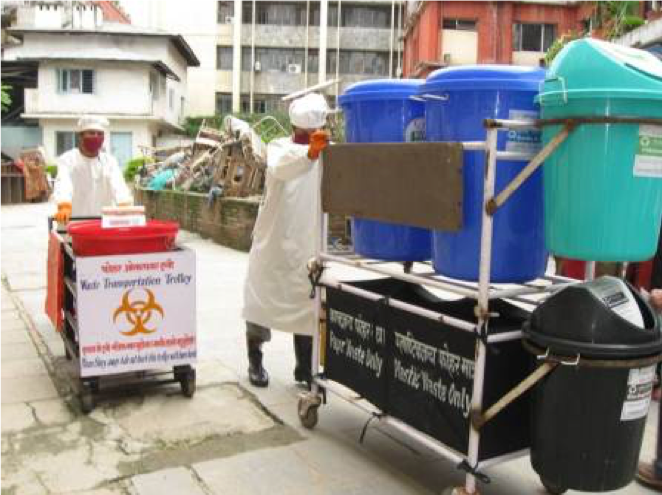We are facing a global crisis that puts an extraordinary and unprecedented burden on health systems, organizations, and professionals. On every continent, health care workers continue to care for people with COVID-19 despite the risks to their families and their own health.
At the same time, they are also facing other environmental health challenges that have been arising during the response to this pandemic, such as management of health care waste, or the implementation in some countries of disinfection tunnels.
We are witnessing how collaboration between health care professionals from different countries is growing, sharing ideas and engaging in conversations around best practices and solutions. In this context, the role of health professionals as reliable, trusted messengers is more important than ever.
We are here for you. We will overcome this crisis with collective work and by helping build a safer and more resilient world.
Our teams at Health Care Without Harm, the Global Green and Healthy Hospitals Network, and our strategic partners around the world are working to support health care professionals by providing strategies, solutions, and resources that address the unique challenges health care professionals are facing. As part of this effort, we developed a Coronavirus Resource Center for our partners, for members of our Global Green and Healthy Hospitals Network, and for the broader community engaged at the intersection of environment, climate change and health.
As we support our communities in managing the immediate threats, we are also exploring the long-term influence of COVID-19 on health care and environmental sustainability, and the path forward.
Factors such as air pollution, lack of access to health care, as well as basic sanitation services as water, aggravate the problem. The most vulnerable – individuals with underlying health conditions, people living in extreme poverty, and the marginalized and displaced – are at the highest risk of suffering devastating losses.
We must strengthen our resilience to future pandemics as well, climate-crisis related disasters by strengthening our health systems. We must also reduce these crises impacts on people and the planet by promoting a just transition to clean, renewable energy and transport, supporting sustainable agriculture and forestry, investing in climate-smart health systems, and by advocating for policies that address the social and environmental determinants of health.

